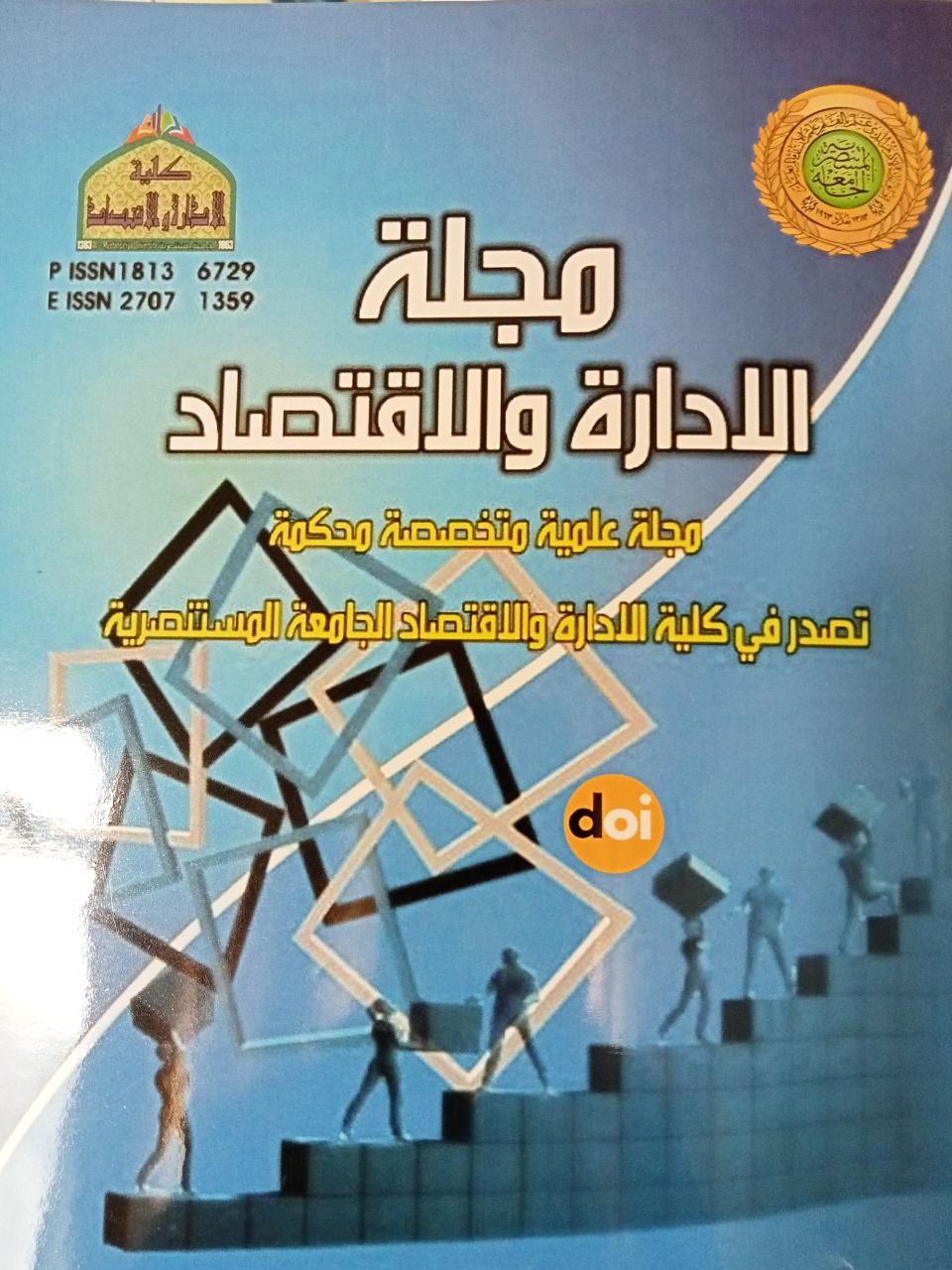Measuring the impact of the budget deficit on Iraq's GDP for the duration (2004-2018)
DOI:
https://doi.org/10.31272/jae.i129.54Abstract
Crude oil is the main source of financing for Iraq's general budget, as the surplus or deficit is linked to the volatility of crude oil prices on international markets. The importance of the research comes from the fact that the subject of the study is concerned with the study of the general budget and its relevance to GDP .
The research aims to analyze the general budget in Iraq as well as the structure of GDP and the relative importance of the contribution of economic sectors to the gross domestic product. The inductive approach was used to analyze the findings of the research, which means that the quantitative method was also used in measuring the relationship between the balance sheet and GDP. The research limits for the period (2003-2018) were extended. The research also reached a set of conclusions and recommendations, including:
1- The Iraqi economy depends on oil revenues directly in the financing of the general budget, which means its economy is a unilateral economy. The Iraqi economy is directly affected by the fluctuation in crude oil prices on international markets due to its dependence on oil revenues.
2- Through the standard side it has been proven that there is a direct relationship between the deficit or the surplus in the general budget and the total bee output.
3- The need to diversify the Iraqi economy and not rely on a single resource to finance the general budget in order to avoid the structural problems and imbalances that occur as a result of dependence on a single economic resource
Downloads
References
1- اديب قاسم شندي ، الاقتصاد العراقي . . . الى اين، الطبعة الاولى، دار المواهب، النجف الاشرف، 2011. ص13
2- اديب قاسم شندي، استشراف مستقبل الاقتصاد العراقي، الطبعة الاولى، واسط ، 2015.ص15
3- روبن ميلز، مستقبل النفط العراقي سلسلة اصدارات، مركز البيان للدراسات والتخطيط، الطبعة الاولى، العراق، بغداد، 2018.ص22
4- سالم توفيق النجفي، سياسات التثبيت الاقتصادي والتكييف الهيكلي واثرها في التكامل الاقتصادي العربي، الطبعة الاولى، بيت الحكمة، بغداد، 2002.ص35
5- علي عباس فاضل الساكني ، تنويع مصادر الإيرادات العامة ، بحث مقدم إلى الدائرة الاقتصادية ، وزارة المالية العراقية ، 2009 ، ص 10 . ص12
6- علي عبد محمد سعيد الراوي : " اتجاهات ومهام السياسة الاقتصادية المناسبة للاقتصاد العراقي" من بحوث الندوة العلمية التي اقامها مكتب الاستشارات في كلية الادارة والاقتصاد- جامعة بغداد، الجزء الاول ، 2005.ص23
7- محمد حسن عبود ، قانون الموازنة الفيدرالية لسنة 2007 ، بحث مقدم إلى الدائرة الاقتصادية ، وزارة الصناعة والمعادن العراقية.ص12
8- مظهر محمد صالح ، الاتجاهات الراهنة للتضخم في العراق ، أيلول 2006.ص18
9- المؤتمر الأول لإعداد الخطة الوطنية الخمسية 2014 – 2010 ، وزارة التخطيط والتعاون الإنمائي العراقية ، بغداد ، 21- 20 / 5 / 2009.ص134
10- نبيل جعفر عبد الرضا، الاقتصاد العراقي من مرحلة ما بعد السقوط، مؤسسة وارث الثقافية، الطبعة الاولى، بغداد، 2008. ص19
11- وزارة التخطيط العراقية ، التقرير الوطني لحال التنمية البشرية 2008.ص20
12- وزارة التخطيط والتعاون الانمائي:"ستراتيجية التنمية الوطنية 2005-2007"، الهيئة الاستراتيجية العراقية لاعادة الاعمار، تشرين الاول ، 2004.ي35

Downloads
Published
Issue
Section
License
Copyright (c) 2022 Journal of Administration and Economics

This work is licensed under a Creative Commons Attribution 4.0 International License.
The journal of Administration & Economics is an open- access journal that all contents are free of charge. Articles of this journal are licensed under the terms of the Creative Commons Attribution International Public License CC-BY 4.0 (https://creativecommons.org/licenses/by/4.0/legalcode) that licensees are unrestrictly allowedto search, download, share, distribute, print, or link to the full text of the articles, crawl them for indexing and reproduce any medium of the articles provided that they give the author(s) proper credits (citation). The journal allows the author(s) to retain the copyright of their published article.
Creative Commons-Attribution (BY)









